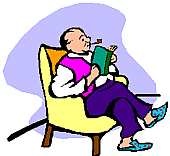To be is the most common verb in the English language, but it doesn't always look like "be", it changes - a lot.
| Singular = 1 | Plural = 1+ | ||
|---|---|---|---|
| I | am | You | are |
| You | are | We | are |
| He/she/it | is | They | are |
To be can be used as an auxiliary or a main verb.
Question ? |
Positive Statement + |
Negative Statement - |
|||
|---|---|---|---|---|---|
Singular |
Written Form or spoken for emphasis |
Contracted |
Written Form or spoken for emphasis |
Contracted |
|
|
Am I?
|
I am
|
I'm
|
I am not
|
I'm not
|
|
|
Are you?
|
You are
|
You're
|
You are not
|
You're not
|
|
|
Is he? |
He
is
She is It is |
He's
She's It's |
He is not |
He isn't
|
|
Plural |
|||||
|
Are
we?
|
We
are
|
We're
|
We
are not
|
We aren't
|
|
|
Are
you?
|
You
are
|
You're
|
You
are not
|
You're
not
|
|
|
Are
they?
|
They
are
|
They're
|
They
are not
|
They
aren't
|
|
The verbs am / is / are are used with:-
| Am/Are | Is | |
|---|---|---|
| a noun group | Are you an English teacher? | Mr Bean is an English teacher. |
| an adjective | I'm tired. | She's English. |
| an expression of place or time | They're at home. | It's nine o'clock. |
| an expression of age | I'm 44. | He's two years old. |
| when forming the present continuous tense | We're learning English. | She's teaching English. |
| Am/Are | Is | |
|---|---|---|
| Question - ? | "Am I disturbing you?" | "Is this your coat?" |
| Positive Answer + Yes | "Yes you are. We're very busy." | "Yes, it is" |
| Negative Answer - No | "No you're not. We aren't very busy." | "No, it isn't" |
You can use the short forms

| "What am I doing?" |  |
"I'm standing. | |
| "What is he doing?" |  |
"He's sitting. | |
| "What is she doing?" |  |
"She's walking. | |
| "What is it doing?" |  |
"It's running. | |
| "What are they doing?" |  |
"They're playing." | |
| "What are we doing?" |  |
"We're surfing the Internet. |
Words ending in two consonants |
To walk | walk + ing |
walking |
|
|---|---|---|---|---|
Words ending in two vowels + consonant. |
To sleep | sleep + ing |
sleeping |
|
| Words ending in one consonant and a vowel (not 'e') |
To do | do + ing |
doing |
|
Words ending in one vowel and g - add g + -ing |
To jog | jog + ging |
jogging |
|
Words ending in one vowel and m - add m + -ing |
To swim | swim + ming |
swimming |
|
Words ending in one vowel and n - add n + -ing |
To run | run + ning |
running |
|
Words ending in one vowel and p - add p + -ing |
To shop | shop + ping |
shopping |
|
Words ending in one vowel and t - add t + -ing |
To put | put + ting |
putting |
|
Words ending in ie - delete ie - + -ying |
To die | d + ying |
dying |
|
Words ending in one consonant and e - delete e + -ing |
To phone | phon + ing |
phoning |
|
This is non-standard English and won't win you any marks in a test or exam:-
| I am not | I ain't |
|---|---|
| He is not | he ain't |
| She is not | she ain't |
| It is not | it ain't |
| You are not | you ain't |
| We are not | we ain't |
| They are not | they ain't |